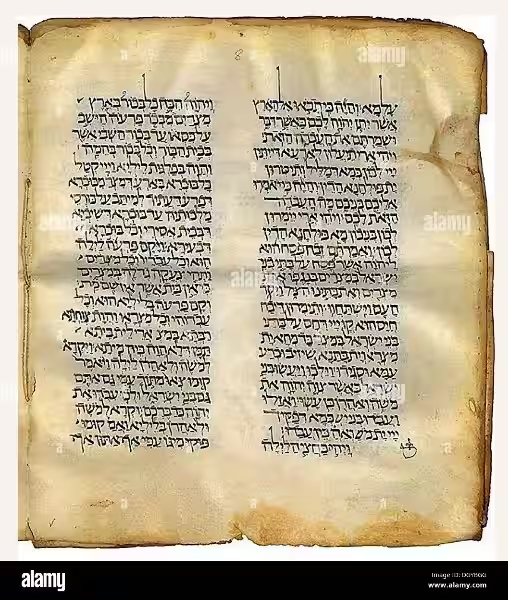Bible Words That Start With X: Unraveling the Mystery

Do you ever wonder about the seemingly simple questions that can lead to surprisingly complex answers in biblical studies? One such question is: are there any Bible words that start with the letter "X"? The answer, as we'll explore, isn't as straightforward as you might think. It touches upon the history of alphabets, translation choices, and the very nature of the biblical text itself.
The Absence of “X” in Original Biblical Languages
The original languages of the Bible – Hebrew, Aramaic, and Greek – didn't possess a letter directly corresponding to the English "X." The letter "X," derived from the Greek Chi (Χ), is a relatively late addition to the alphabet. Its history is largely separate from the development of the alphabets used in composing the original biblical texts. Consequently, the sounds represented by "X" in English were simply absent from the phonetic inventories of these ancient languages.
This fundamental linguistic difference explains why we don't find words beginning with "X" in the original Hebrew, Aramaic, or Greek manuscripts. There's no direct equivalent sound to translate. This absence isn't just about a single letter; it reflects a significant difference in the structure and evolution of writing systems across different cultures and time periods. Understanding this historical context is crucial for grasping why the question itself is inherently nuanced.
The Impact on Translations
The absence of an "X" sound in the original languages has significant implications for translations. Even in translations aiming for maximum accuracy in preserving original sounds, the lack of a direct "X" equivalent means no verse would naturally begin with such a sound. English translations might use "X" in loanwords or names borrowed from languages that do have an "X" sound, but these instances are rare, and rarely initiate a verse.
The translation process itself is a complex endeavor involving adapting words and phrases to fit the target language's grammatical structures and vocabulary. Arbitrarily introducing an "X" at the beginning of a verse where none existed in the original text would be highly unnatural and disruptive to the text's meaning and flow. Accuracy and coherence are prioritized over the arbitrary inclusion of letters.
Xanthicus: An Apocryphal Exception
While the canonical Old and New Testaments lack words beginning with "X," a notable exception exists within the Apocrypha. The word Xanthicus (or Xanthikos), appears three times in the Second Book of Maccabees in the King James Version (KJV). This word refers to a month in the Macedonian lunar calendar, corresponding to March.
The inclusion of Xanthicus highlights several important considerations regarding biblical concordances and translation choices. Concordances, which meticulously list words and their occurrences, are invaluable tools for Bible study. They demonstrate the precise frequency of words in different biblical sections (Old Testament, New Testament, Apocrypha), allowing for detailed analysis of word usage and theological significance. However, it is crucial to remember that concordances are specific to the Bible version they cover (like the KJV in this case). Different translations will have different word choices and frequencies.
Concordances and Context
The case of Xanthicus illustrates the power of a concordance in providing not only word counts but also historical and cultural context. The explanation accompanying the Xanthicus entry in a KJV concordance would detail its meaning and significance within the Hellenistic world of the pre-Common Era. This contextual information enriches our understanding of the text and its historical background, showcasing the broader use of concordances beyond simple word counting.
Therefore, while we might not find Bible words starting with "X" in the canonical texts, the Apocrypha, with its inclusion of Xanthicus, presents a fascinating exception. This highlights the importance of considering the specific sections of the Bible and the inherent variability across different translations when exploring such questions.
Translation Variations: The Case of Xerxes
The question of whether a Bible verse begins with "X" is further complicated by the use of different translations. The King James Version (KJV), for instance, does not contain any verses beginning with "X," even with the three appearances of Xanthicus. However, some modern translations, like the Contemporary English Version (CEV), do include verses that start with "X."
This discrepancy often stems from the translator's choices regarding names and word selection. A specific example is the name of a Persian king: the KJV employs "Ahasuerus," while the CEV uses "Xerxes." This demonstrates how a simple name change, driven by different translation philosophies, can significantly alter the text's composition and even alter which letters initiate verses.
The Impact of Textual Choices
The differences between the KJV and the CEV highlight the dynamic nature of the biblical text across different versions and over time. The seemingly simple question of whether a verse starts with "X" underscores the necessity of specifying the Bible translation when discussing biblical content. This is a crucial lesson in biblical scholarship, emphasizing the importance of considering the specific textual choices made by different translators and the resulting impact on the interpretation of the text. The seemingly simple question, therefore, opens a window to the broader complexities of biblical translation and interpretation.
Frequently Asked Questions: Bible Words Starting with “X”
Are there any words in the Bible that start with the letter "X"?
While the English letter "X" is relatively common in modern English, the answer is nuanced. The original languages of the Bible (Hebrew, Aramaic, and Greek) did not contain a letter that directly corresponds to "X." Therefore, words beginning with "X" are largely absent in the original texts. Any instances found in modern English Bibles are primarily due to the inclusion of names and words borrowed from languages which do use "X," and even then, these are very rare, and almost never start a verse.
Does the King James Version (KJV) contain any words starting with "X"?
The KJV, a historically significant translation, contains only three instances of the word "Xanthicus," all found within the Apocrypha (specifically, the Second Book of Maccabees). However, none of these occurrences begin a verse. This underscores that even rare instances of "X" words are not typically found at the beginning of verses.
If "Xanthicus" appears in the Apocrypha, why aren't there more "X" words?
The Apocrypha's inclusion of "Xanthicus" is a specific case related to the Macedonian calendar's use of this word for a month (March). The word's presence doesn't imply a broader usage of "X"-prefixed words in the original biblical languages or even within the Apocrypha itself. The original languages simply did not feature the "X" sound.
Do different Bible translations have different words starting with "X"?
Yes, different translations can present variations. Some modern translations, aiming for greater readability or closer adherence to underlying sounds in certain languages, might use names like "Xerxes" where the KJV uses "Ahasuerus." This choice can result in a verse beginning with "X" in one translation but not another. This highlights the inherent variability within biblical translations and the impact of textual choices.
Is it useless to search for Bible verses starting with "X"?
Effectively, yes, for most common English translations. The absence of "X" in the original biblical languages and the general practice of translation make it highly unlikely to find a verse beginning with "X" in most translations. The rarity is a direct consequence of linguistic and historical factors. While exceptions exist due to translation choices, they are exceedingly rare.
Why are there no X words in the Old and New Testaments?
The Old and New Testaments, written in Hebrew, Aramaic, and Greek, lack a phoneme (sound) directly corresponding to the English "X." The letter "X" developed later in the alphabet's history. Therefore, any "X" words in modern English translations are derived from later linguistic borrowing, and are extremely rare within the main biblical texts.








